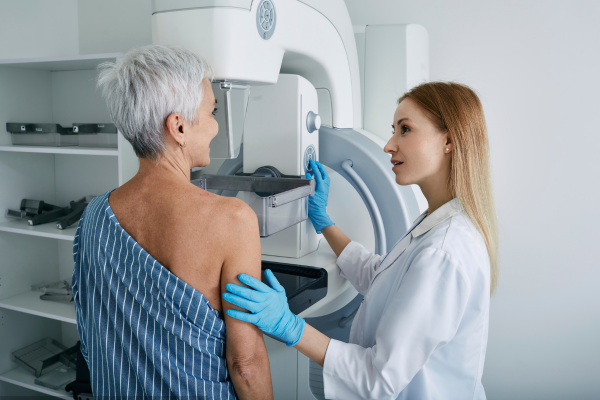Table of Contents
Key Screenings for Women’s Health by Age
Ensuring that women receive the right health screenings at the right times can be life-saving. Health screenings detect potential problems early, allowing for timely intervention and better health outcomes. As women age, the recommended screenings change, reflecting different health risks and needs. Regular check-ups are crucial in maintaining wellness throughout life.
Cervical Cancer Screenings: Pap Smears and HPV Tests
Starting at age 21, women should begin cervical cancer screenings. Pap smears are essential every three years for women aged 21-29. These tests look for precancerous or cancerous cells on the cervix. For women aged 30-65, the recommended screening includes a Pap smear combined with an HPV test every five years. HPV tests detect the presence of the virus that can lead to cervical cancer.
Regular cervical cancer screenings are vital because:
- Early detection of abnormal cells can prevent cancer development.
- HPV testing identifies high-risk virus strains.
- Combined testing increases screening accuracy.
Women over 65, with a history of normal results, may stop cervical cancer screenings after consulting with their healthcare provider.
Breast Cancer Screenings: Mammograms and Self-Exams
Breast cancer screenings typically start at age 40, though earlier screenings may be recommended for those with a family history of the disease. Mammograms, which are X-ray images of the breast, are the gold standard for detecting breast cancer. Women aged 40-49 should discuss the need for annual mammograms with their doctor. From age 50-74, mammograms are recommended every two years.
Key points about breast cancer screenings:
- Mammograms can detect tumors that are too small to feel.
- Early detection improves treatment success rates.
- Self-exams help women become familiar with their breasts and notice changes.
Women over 75 should continue screenings based on their overall health and personal risks, as advised by their healthcare provider.
Osteoporosis Screenings: Bone Density Tests
Osteoporosis becomes a significant concern for women as they age, particularly post-menopause. Bone density tests, also known as DEXA scans, are recommended for women aged 65 and older. This test measures bone strength and helps predict the risk of fractures. Women under 65 with risk factors, such as a family history of osteoporosis or long-term steroid use, should discuss earlier testing with their doctor.
Why bone density tests matter:
- They identify osteoporosis before a fracture occurs.
- Early intervention can prevent bone loss.
- Treatments can strengthen bones and reduce fracture risks.
Maintaining bone health through diet, exercise, and, if necessary, medication is crucial for older women to prevent osteoporosis-related complications.
The Importance of Regular Check-Ups at Different Life Stages
Regular health check-ups are essential throughout a woman’s life, not just for specific screenings. These visits allow for comprehensive health assessments, updating vaccinations, and addressing any concerns. Check-ups are opportunities for:
- Monitoring chronic conditions.
- Discussing lifestyle changes to improve health.
- Building a relationship with a healthcare provider.
Different stages of life bring unique health challenges and risks. From reproductive health in young adulthood to managing menopause and aging, each stage requires specific attention and care. Women should work with their healthcare providers to develop a personalized health screening schedule.
Healthy Aging: Additional Screenings and Preventive Measures
As women age, additional screenings become important. These include cholesterol checks, diabetes screenings, and colonoscopies starting at age 50 for colon cancer. Eye exams and hearing tests also become more critical as women grow older.
Preventive measures for healthy aging include:
- Regular physical activity to maintain mobility and strength.
- Balanced diet rich in calcium and vitamin D for bone health.
- Mental health screenings to address cognitive and emotional well-being.
A proactive approach to health, combining regular screenings with healthy lifestyle choices, can significantly improve the quality of life for women as they age.










